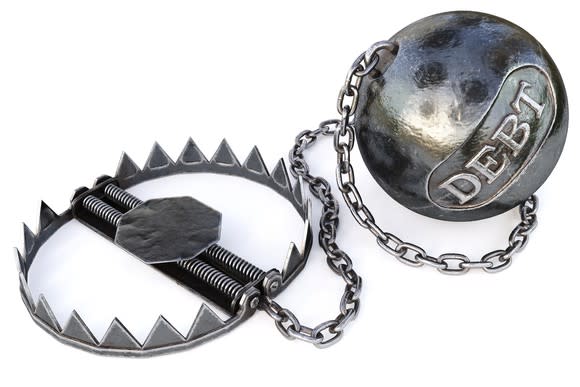Valeant Pharmaceuticals' Stellar 43% Gain in 2017, Explained
What happened
Shares of Valeant Pharmaceuticals (NYSE: VRX), an embattled drug developer known for its price hikes and acquisitions to drive growth, launched higher by 43% in 2017, according to S&P Global Market Intelligence, ending a stretch of terrible years. The impetus behind the move higher in Valeant's stock appears to be that the company's turnaround plan is finally taking shape.
So what
When Joe Papa took over as the CEO of Valeant, the company was a complete mess. Its core and non-core operations had rapidly declining sales, and the company's debt load was restricting its ability to make any moves. By the end of 2017, Valeant was in considerably better shape.

Image source: Getty Images.
Papa recently noted that Valeant had paid off close to $6 billion in debt, primarily as a result of divesting non-core assets. Some of these divestment include iNova Pharmaceuticals, Obagi Medical Products, and its Dendreon assets, which had previously been acquired out of bankruptcy. Topping Papa's original target of $5 billion in debt reduction well ahead of the February 2018 target date demonstrates to Wall Street and shareholders that management is running a tight ship.
Second, Valeant's core operating segments began to show signs of life. At the beginning of 2017, management had set an organic growth goal of 5% to 7% for Bausch & Lomb, and it appears to be right on track to hit that goal. Likewise, Salix Pharmaceuticals generated organic growth of 6% during the third quarter. A return to sales growth is only going to be possible if Valeant's core operations are running on all cylinders.
Last, we witnessed other improvements in the company's financial status. Management wound up restructuring a number of the company's outstanding debentures, pushing maturity dates out multiple years, and giving the company time to turn its business around. To add, Valeant's debt covenant, which is represented by the EBITDA (earnings before interest, taxes, depreciation, and amortization)-to-interest coverage ratio, improved nicely in 2017. While the company's debt demons aren't gone, its lenders are likely breathing easier.

Image source: Getty Images.
Now what
Though Valeant put together an excellent year, it's by no means in "good shape."
Perhaps the biggest question mark is whether it'll be able to make a dent in its remaining debt. Papa has stated that Valeant is done divesting non-core assets for the moment, which would suggest that he expects operating free cash flow to reduce the company's debt pile. However, each time Valeant restructured its debt and pushed out its maturity dates, it also accepted higher interest rates and fees in the process. Despite reducing its debt by around $6 billion since its peak, it's barely moved the needle on its quarterly interest and fee obligations. I'm particularly skeptical of whether the company can make any progress on reducing its principal debt.
Valeant also needs to find a way to reignite growth in its non-core businesses, many of which have witnessed double-digit percentage sales declines. This could be difficult to do with a number of older products soon coming off patent. Valeant regularly acquired mature medicines and increased their prices prior to 2015. But with the company's pricing practices now under a microscope, it no longer has that pricing power. Instead, it's left with an aging portfolio of products that could soon face generic competition.
More From The Motley Fool
Sean Williams has no position in any of the stocks mentioned. The Motley Fool owns shares of and recommends Valeant Pharmaceuticals. The Motley Fool has a disclosure policy.

 Yahoo Finance
Yahoo Finance 